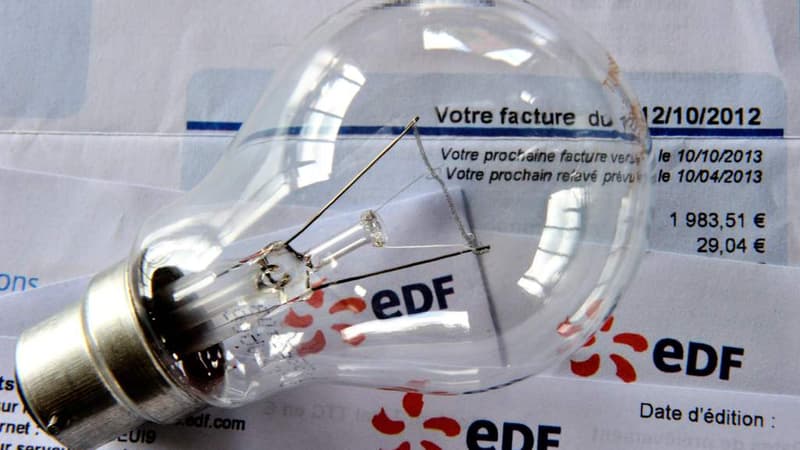After several price increases, millions of electricity subscribers will be able to breathe a sigh of relief: the energy police have decided to postpone the increase in the price of one of the components of most customers’ bills until February, when electricity prices are expected to fall sharply. The increase in the “network tariff”, linked to transport costs, will only apply from 1 February.
This increase, which represents a 1% rise in the bill of subscribers to the “EDF blue tariff” (regulated tariff), will then be absorbed by the expected drop in electricity prices. Ultimately, affected households could benefit from a reduction in their bill of “at least 10%”, said the Energy Regulatory Commission (CRE) in a deliberation on Wednesday.
Price increase of 43% in two years
The increase, linked to a 4.8% increase in the “network tariff” (TURPE), was initially scheduled for 1 August. But the resigning government had decided not to apply it, a way of avoiding a “yo-yo” of prices that would be incomprehensible to consumers, Bercy justified in mid-July, thereby avoiding a new controversy, in the midst of a political crisis.
Energy prices, which reached their highest level in 2021-2022 due to the post-Covid recovery and the war in Ukraine, have largely stirred up debates in the European and legislative elections. In two years, electricity prices have increased by more than 43% despite the price shield established by the State.
The government therefore asked the CRE to hold a new deliberation taking into account its stability recommendations. The “annual update” of the TURPE (tariff for the use of public electricity networks), one of the three components of the bill together with the cost of the electricity itself and taxes, is thus maintained for effective entry on 1 November.
But, “with the aim of price stability and legibility”, for households and VPE at regulated electricity sales rates (TRVE) – that is, 22.4 million meters – the CRE proposes to postpone this increase in the TURPE until February 1, the usual date for reviewing the TRVE. The aim of the postponement? Make the increase painless, thanks to the drop in electricity prices that are included in the calculation of the bill.
Market prices are around 60-70 euros per MWh
Although they have not yet returned to their pre-crisis level (40/50 euros per megawatt hour), these prices on the markets are now stabilising at around 60-70 euros per MWh, far from the highs of 2022, explains the CRE. The CRE thus anticipates “under current market and fiscal conditions a fall of at least 10% of the TRVE in February 2025”, the first since the start of the energy crisis. This reduction would therefore include the increase of the TURPE and the increase of the special tax on electricity, a tax that the resigning government has promised to reinstate as far as possible in order to definitively escape the costly tariff shield.
Specifically, starting in February, for an average household with an annual bill of 2,000 euros, the savings are estimated at at least 200 euros per year, a breath of fresh air that adds to the fall in fuel prices.
The CRE recommended a 4.8% increase in the “network rate” in August
The fact is that the increase in the TURPE will be applicable on November 1st for the 17.5 million households and companies in market supply (indexed on the markets). In theory, because operators can also decide not to transmit it. “It cannot be ruled out that very few do so,” says the CRE. These providers already offer today offers much lower than those of the TRVE, around 20%.
In its deliberation on June 26, the CRE recommended increasing the “network tariff” by 4.8%, reviewed every year in August, to take into account the increase in transmission costs for the distribution manager Enedis, a sort of toll paid by suppliers and passed on to individuals and professionals. A “necessary” update, repeats the CRE, while France will have to use more electricity to move away from fossil fuels.
Source: BFM TV


